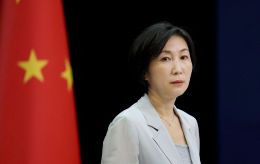Taiwan elections: Potential winner and possibility of conflict with China
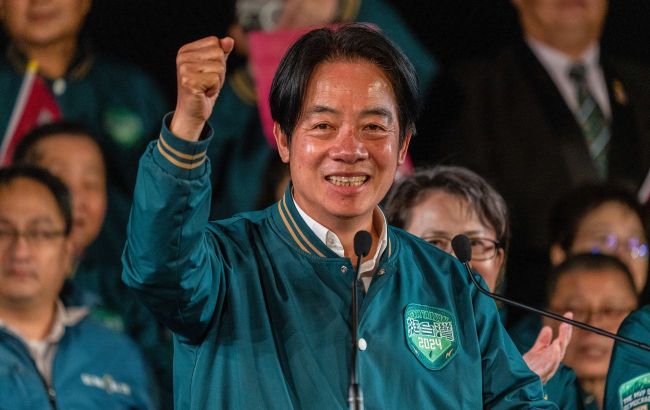 Lai Ching-te, presidential candidate of the Democratic Progressive Party (photo: Getty Images)
Lai Ching-te, presidential candidate of the Democratic Progressive Party (photo: Getty Images)
The first election in 2024, which is being closely watched by the world, will be held in Taiwan, and its outcome will have a global geopolitical impact. Who can win this election, how China can react to it, and whether there is a risk of a new war read in the RBC-Ukraine article.
Sources used: VOX, The Diplomat, Al Jazeera, Reuters, Xinhua, as well as an exclusive commentary by Yurii Poyta, Head of the Asia-Pacific Section at the Center for Army, Conversion and Disarmament Studies.
The Kuomintang vs. the Democrats
On Saturday, January 13, Taiwan will hold presidential and parliamentary elections. Representatives of three parties will compete for the presidency of Taiwan this weekend: current Vice President Lai Ching-te of the ruling Democratic Progressive Party (DPP), New Taipei Mayor of the Kuomintang Party, Hou Yu-ih, and Ko Wen-je, leader of the young Taiwan People's Party.
After being defeated in the civil war with the Communists in the late 1940s, Kuomintang leader Chiang Kai-shek and his supporters fled to the island of Taiwan, which the Communists never dared to attack. Since then, Taiwan has become a de facto independent country (although it has nominally claimed the territory of mainland China, where the Communist People's Republic of China was formed). The country was ruled by authoritarianism for decades, but since the 1980s, Taiwan has gradually moved to a democratic system with free elections and human rights guarantees.
Since the first democratic elections in 1992, Taiwan's two main political parties (the Kuomintang and the DPP) have changed leadership every eight years. This time, however, this "tradition" may be broken, as Lai Ching-te is the favorite in the presidential race, and attempts by Hou Yu-ih and Ko Wen-je to run as a united opposition front have failed due to disputes.
However, the situation may be different in the parliamentary elections. The DPP is unlikely to win a mono-majority in parliament, which means that a coalition of the Kuomintang and the Taiwan People's Party may be able to form a government. This means that the president and the parliament will have to get along somehow and seek a compromise when making certain decisions.
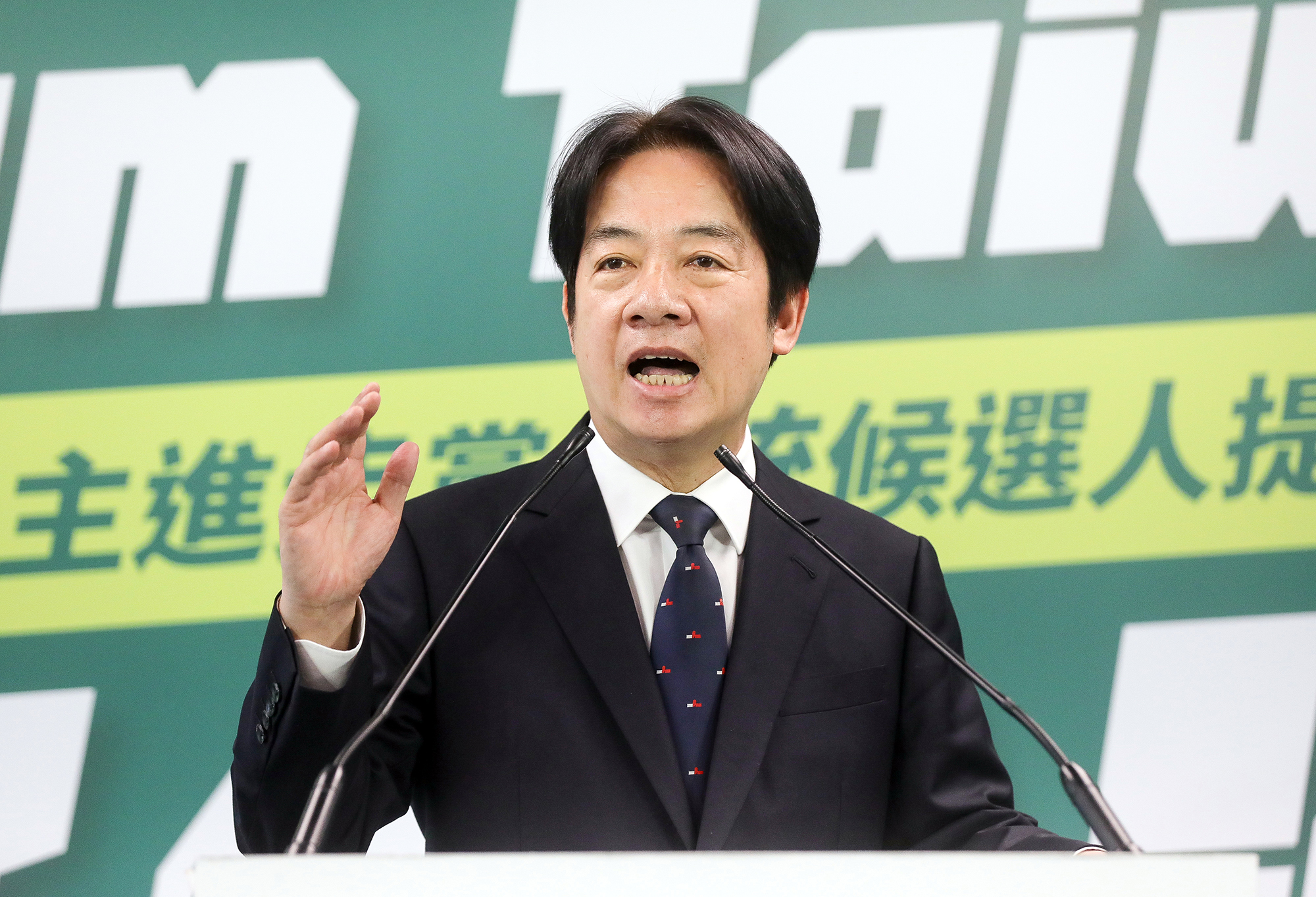 Taiwan's next president may once again be a Democrat (photo: Getty Images)
Taiwan's next president may once again be a Democrat (photo: Getty Images)
Surprisingly, today the Kuomintang supports Taiwan's rapprochement with China, unlike the DPP, which advocates the island's independence and rapprochement with the United States. The Taiwan People's Party, established in 2019, is in opposition to both the Kuomintang and the DPP.
As Yurii Poita, head of the Asia-Pacific section at the Center for Army, Conversion and Disarmament Studies, explains to RBC-Ukraine, the current pro-Chinese position of the Kuomintang is primarily due to the party's ideology, which envisages the return of power over the whole of China, which was lost after the defeat in the civil war. But today, this scenario seems unrealizable, so part of the "old generation" of the Kuomintang has concluded that if you cannot conquer the superpower China, become part of it.
"But this position on unification is not shared by all members of the Kuomintang, and those who do support it do not say it out loud, because society does not support unification with China. For any political party to talk about unification with China is suicidal," Poita says in an interview with the agency.
The rest of the Kuomintang favors rapprochement with Beijing but with the status quo. One of the Kuomintang's election promises was to revive a trade agreement that would further liberalize trade, which they claimed would stimulate Chinese investment in Taiwan. But it should not be forgotten that this agreement led to student protests in 2014, which resulted in the PPP regaining its popularity among Taiwanese.
According to the Kuomintang, if the dialogue with Beijing, which was suspended after the DPP representative Tsai Ing-wen came to power, and economic cooperation is maintained, this will reduce the risks of a military confrontation with China.
 The Kuomintang Party is in favor of rapprochement with China (photo: Getty Images)
The Kuomintang Party is in favor of rapprochement with China (photo: Getty Images)
During the eight years of Tsai Ing-wen's rule, Taiwan has distanced itself from China and deepened its relations with the United States. Washington has turned into Taiwan's main ally and patron, although it does not recognize the island's independence.
Today, Taiwan is a de facto independent state, but it is unlikely that the Democratic representative Lai Ching-te will take any steps toward declaring independence from China if he wins the election. Although 80% of Taiwanese do not support joining China, they do not like formal independence from the mainland either. Most Taiwanese are satisfied with the current situation.
Therefore, no matter what the outcome of the elections in Taiwan, it is unlikely to affect the island's status. Although the Kuomintang wants to be "friends" with Beijing, the Taiwanese themselves will not allow it to join China. And the Democrats will not destroy the status quo to avoid a military confrontation with the Chinese. And it is unlikely that Washington will approve of such a move by Taipei, as the United States could be drawn into a war with China on the side of its ally.
Big Brother is watching
China always reacts painfully to any actions of Taiwan that Beijing does not like. For example, in August 2022, Tsai Ing-wen's administration experienced the most serious crisis in the Taiwan Strait in recent years when then-Speaker of the House of Representatives Nancy Pelosi visited the island. Pelosi became the highest-ranking U.S. official to visit Taiwan since 1997. In response, China conducted military exercises with firing around Taiwan and simulated landings and missile strikes.
The Taiwan issue is of utmost importance to the Chinese Communist government and its leader, Xi Jinping. The so-called "reunification" with Taiwan is written in the first articles of the party charter of the ruling Communist Party and the 2018 constitution of the People's Republic of China. And the closer the elections in Taiwan got, the sharper China's rhetoric became.
At the end of last December, Xi Jinping, speaking at a symposium on the occasion of the 130th anniversary of Mao Zedong's birth, declared the inevitable "reunification" of Taiwan with mainland China and threatened to "resolutely oppose" any attempts by the island to declare its independence. He also said this during a meeting with U.S. President Joe Biden in San Francisco last year.
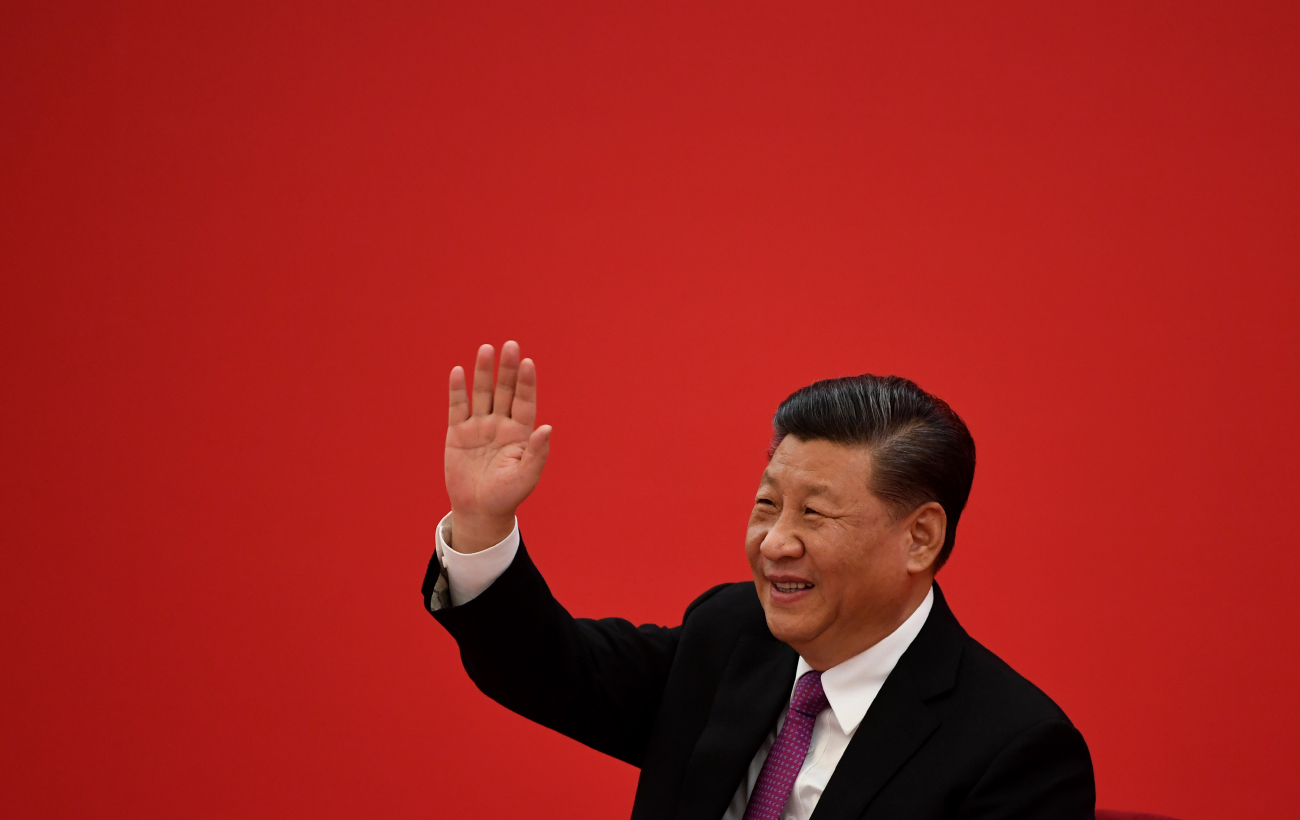 Xi Jinping wants "reunification" with Taiwan and threatens war (photo: Getty Images)
Xi Jinping wants "reunification" with Taiwan and threatens war (photo: Getty Images)
Before that, Beijing resumed its military presence off the coast of Taiwan, staging provocations with Chinese combat aircraft crossing the conditional border between the two countries. Recently, Taiwan has been on air alert because of a Chinese satellite launch vehicle that flew over the southern part of the island.
In addition, Beijing is publicly trying to interfere in the island's electoral processes, scaring Taiwanese voters with war if the Democrats win. In particular, China has claimed that voting for the DPP is a vote for war in the Taiwan Strait. And in his New Year's address, Xi Jinping said that "the reunification of the homeland is a historical inevitability."
China also hinted at possible problems in Taiwan's economy. Despite complicated political relations, China is the island's main economic partner. In December, Zhang Zhijun, chairman of the Chinese Association for Relations Across the Taiwan Strait, called on the Taiwanese to make the "right choice" on January 13.
Taiwan has also accused China of disinformation campaigns on social media.
Will there be war for Taiwan?
The outcome of the election in Taiwan will not suit Beijing, and thus a new escalation cannot be ruled out. For example, new military exercises around Taiwan or a trade blockade. However, an attack on the island is unlikely at this time, as China does not yet have enough forces to wage such a war.
"China has not yet reached the level of readiness of its forces to conduct a successful operation. Without achieving these capabilities, it is unlikely to launch it, as it will lose, lose a significant part of its fleet and aircraft, and turn the whole world against it," Yurii Poita says in an interview with the agency.
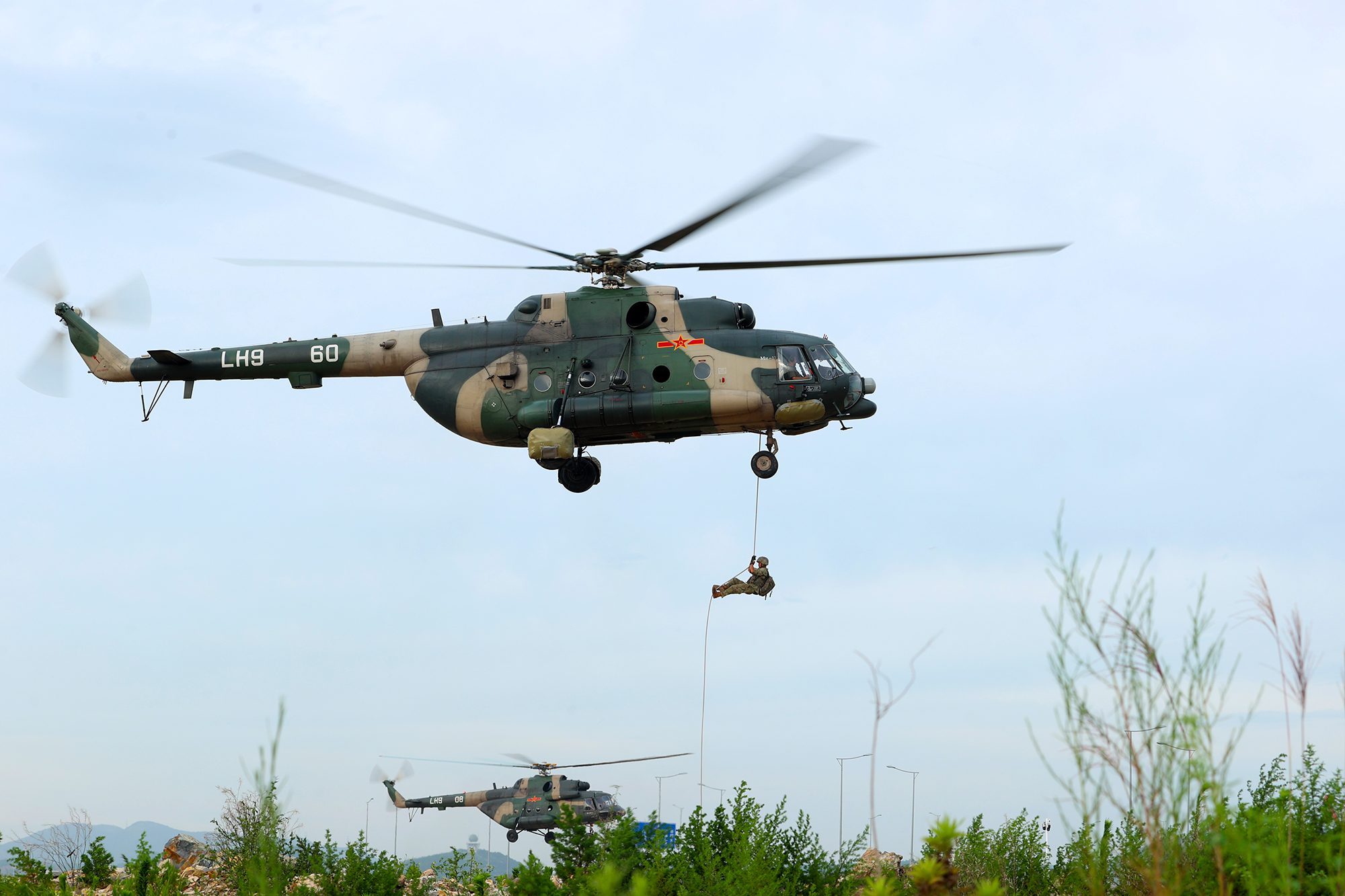 China is not yet ready to invade Taiwan (photo: Getty Images)
China is not yet ready to invade Taiwan (photo: Getty Images)
However, in the future, such a military operation to "reunify" may still take place, and China is intensively preparing for it. As previously stated by the Director of the U.S. Central Intelligence Agency, William Burns, the Chinese army could reach full readiness to attack Taiwan as early as 2027. However, according to Poita, as of today, this deadline has shifted to 2030.
"So, the next few years will not be pivotal and China will not invade, but 2027-2030 is seen as a more unstable and less predictable period. Whether China will launch an operation or not, we cannot say for sure, but China will take into account many factors. In particular, the readiness of the United States to intervene in the conflict and the readiness of its economy and society for war," the expert says.
The war over Taiwan, if the United States enters it, could cost $10 trillion, which is 10% of global GDP, Bloomberg analysts recently estimated. The consequences will affect all parties to the conflict: Taiwan's economy will be destroyed, and the Chinese and American economies will suffer huge losses.
Self-interest or imperial ambitions
In any case, China and its leader, Xi Jinping, will not leave Taiwan alone and will not give up the pursuit of "reunification." Taiwan is the world's largest producer of semiconductors, and gaining power over the island would allow China to control the global microchip market.
But it is unlikely that microchips are the reason for China's desire to conquer Taiwan, Poita believes, as a war would lead to the destruction of production on the island. Moreover, even if China does take over Taiwan's industry, it is unlikely to be able to obtain the technologies needed to produce microchips. The Netherlands, one of the U.S. NATO allies, is a monopolist among manufacturers of microchip stamping machines.
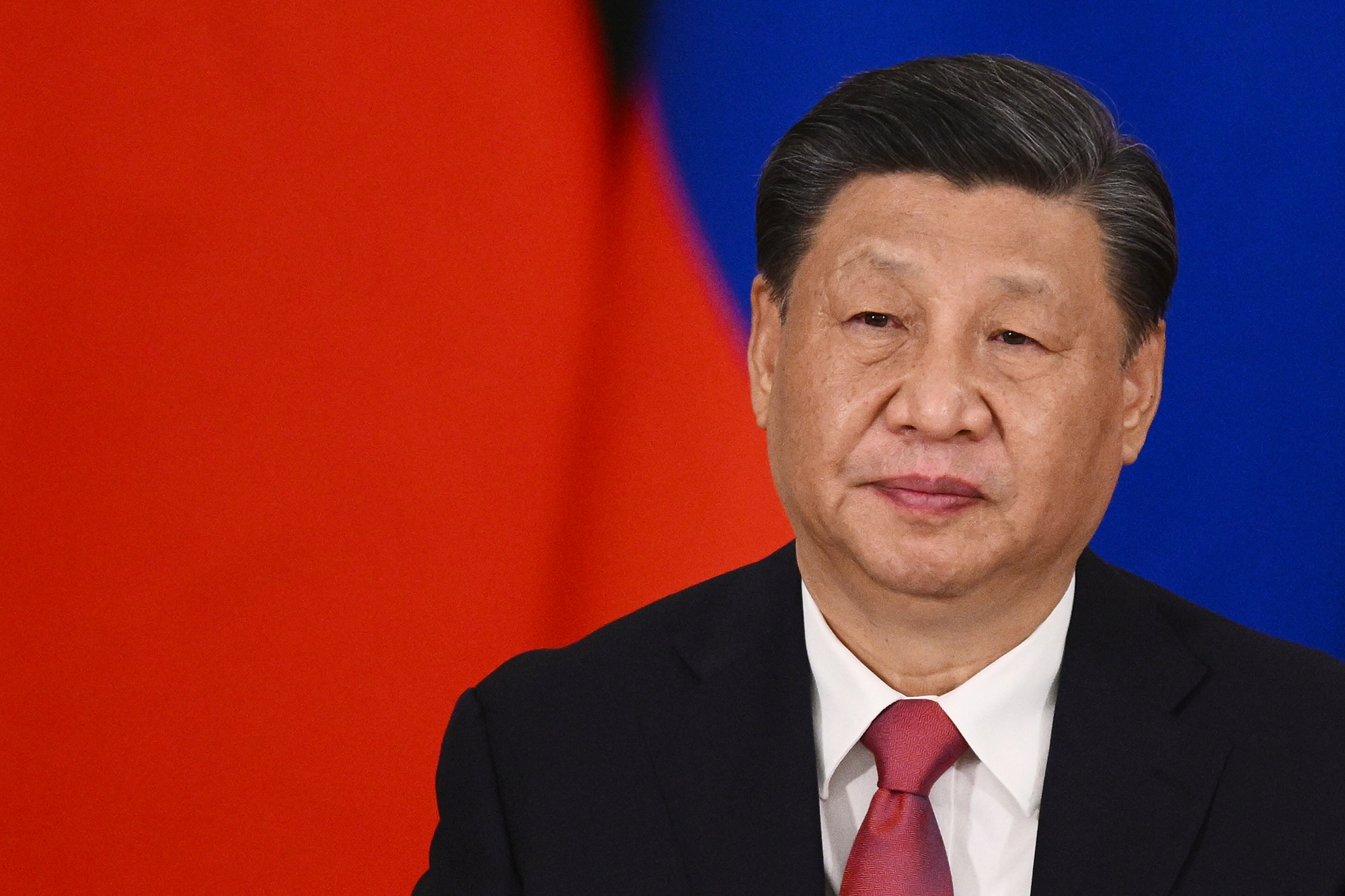 Xi Jinping is unlikely to give up on the seizure of Taiwan (photo: Getty Images)
Xi Jinping is unlikely to give up on the seizure of Taiwan (photo: Getty Images)
What fuels China's aggressive interest is Xi Jinping's ambition and, similar to Russian dictator Vladimir Putin, desire to go down in history as a "land-gatherer." "China, like Russia, has the same worldview that what belonged to China in ancient times is the Chinese sphere of influence. Probably, this mindset that China must restore itself as a great power is dominant in the Chinese leadership and society. And this is probably the determining factor," Poita explains to the agency.
Beijing has already managed to regain control of Hong Kong, which has had an autonomous status within China since 1997, by suppressing anti-Chinese protests in 2020 and effectively eliminating the democratic opposition. And unification with Taiwan is part of the so-called "Chinese dream."
In addition to the ideological component, Taiwan is of strategic importance to China. Taiwan is located within the so-called "first island chain" in the neighborhood of the mainland. And today, to go beyond this first ridge, Poita notes, China needs to overcome two straits - between Taiwan and Japan and between Taiwan and the Philippines.
"These two bottlenecks can be compared to the Kerch Strait. These are weak points for the Chinese navy. Therefore, if China controls Taiwan, it will be on the front line and will be able to further expand to the limits of the so-called "second island ridge," the expert explains.
So Taiwan could become a springboard for China's further aggression, just as Ukraine's Crimea once became a springboard for Russia.



